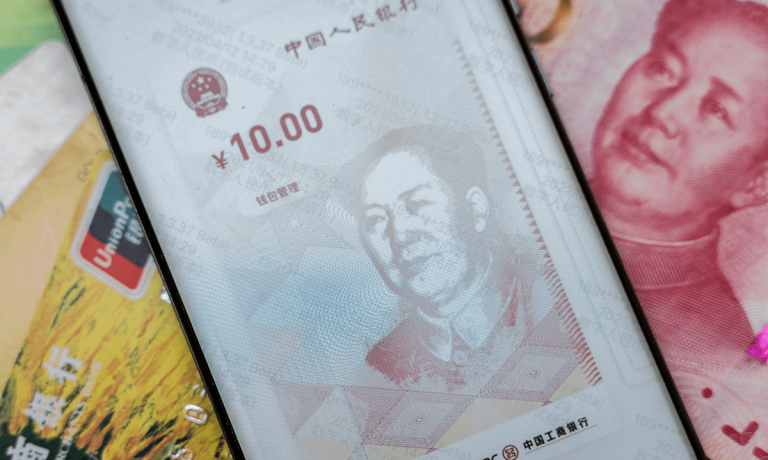That represented 360 million transactions made at some 5.6 million merchants in 15 provinces who now support the central bank digital currency (CBDC), formally called e-CNY or digital renminbi, the PBoC said in a release.
While China is far ahead of other major developed countries in developing a CBDC — having started in 2014 — its testing and rollout campaign has been slow, in part to provide time for merchants to prepare for it and in part to convince consumers to use it instead of the more familiar and popular AliPay and WeChat Pay, which together account for more than 90% of China’s digital payments volume.
To further that end, China has taken a number of steps to level the playing field, notably pressuring merchants to accept it and mandating a “scan with one code” law that effectively forced AliPay and WeChat Pay to accept the e-CNY and work on a system in which it is equally accessible to consumers.
It has also held 30 lotteries, giving away millions of dollars in digital yuan in small amounts to hundreds of thousands of consumers who had to download digital wallets to get it and use it or lose it within a fairly short time.
It has also worked to overcome widespread concerns that it would be used to track people’s spending minutely.
Advertisement: Scroll to Continue
The PBoC said that the e-CNY took “account of customer privacy protection and security compliance, following the principle of ‘anonymity for small amounts and traceability of large amounts in accordance with the law’” to fully protect the public’s reasonable personal information protection needs.
It added that all levels of government have been pushing the CBDC, opening digital renminbi payment services “for public utility payments, using digital renminbi to issue tax rebate funds, special funds for monthly medical insurance payment, funds for helping people in need, and ‘specialized, special, and new’ enterprise support funds,” among others. There has been a focus on including “county-level rural areas” by providing financial services such as agricultural product sales and subsidies for farmers.
Power play
China has also been experimenting with cross-border payments using the e-CNY, working with Hong Kong, Thailand and the United Arab Emirates on a successful test carried out under the auspices of the Bank for International Settlements (BIS).
This cross-border usage has led to a fair amount of Congressional support for a digital dollar, with proponents arguing that a U.S. CBDC is needed to prevent China from undercutting the dollar’s position as the world’s de facto reserve currency.
The latest show of support came from Rep. Jim Himes (D-Conn.), who told CoinDesk on Oct. 18 that the U.S. must move ahead with developing and piloting a digital dollar so “we’ve got the option to move forward if we need to.”
Noting that it would be very easy to pull back, Rep. Himes asked, “Why would you exit the game before you even know what the game is going to look like?”
On the other hand, Federal Reserve Governor Christopher Waller said in a speech a few days earlier that a digital dollar is probably not needed to ensure the primacy of the U.S. dollar.
“I am not a national security expert,” Waller said. “But one area where economics, CBDCs, and national security dovetail is the role of the dollar. Advocates for creating a U.S. CBDC often assert how it is important to the long-term status of the dollar, particularly if other major jurisdictions adopt a CBDC.”
He added, “I disagree… I don’t think there are implications here for the role of the United States in the global economy and financial system.”
Launching a CBDC would involve new risks, notably cybersecurity, he said.
Separately, the BIS and Hong Kong Monetary Authority announced on Oct. 21 that a test had shown that CBDCs can work in tandem with private stablecoins while preventing “over-issuance and double-spending.”
For all PYMNTS crypto coverage, subscribe to the daily Crypto Newsletter.

